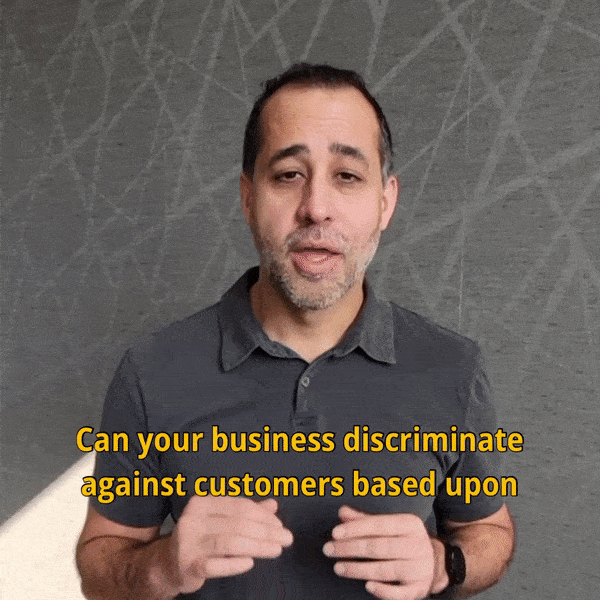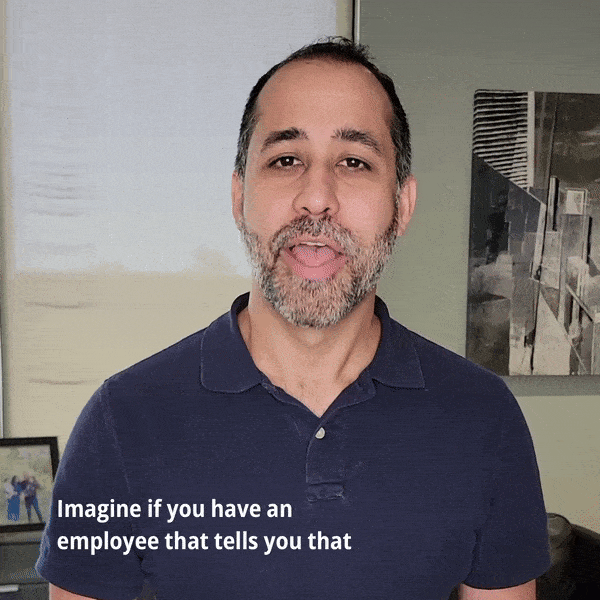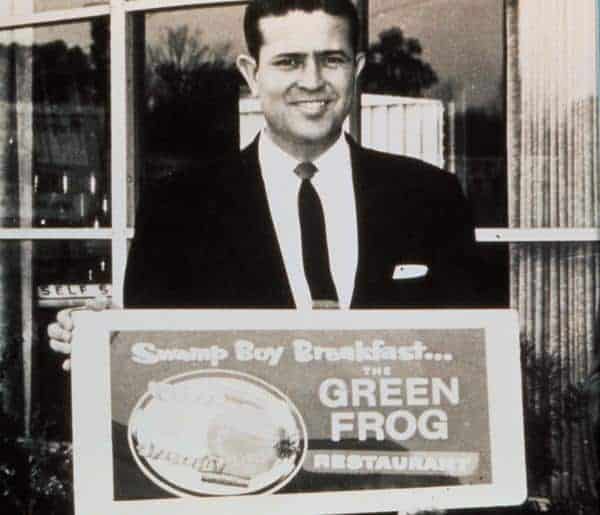“If you had to murder somebody, would you use a gun or a knife?”
“Do you think your mother is attractive?”
“How many different things can you think of that you can do with a paper clip?”
Am I being too nosy? Perhaps just plain strange?
NFL Scouting Combine
Well, if you were a player at last week’s NFL combine, then you might not have had any choice but to answer my weird inquiries.
The NFL scouting combine is a yearly, week-long event that allows college players to perform physical and mental tests in front of coaches, scouts, and general managers. And part of those mental tests is answering crazy questions that do not seem as if they have anything to do with anything – let alone football.
What exactly do you think the NFL thought they’d learn about Austen Lane’s skills on the field when they asked him whether he wears boxers or briefs?
The questions asked at this event can be extremely personal, very bizarre, and sometimes even, perhaps highly inappropriate.
And in the end, the combine is kind of like a big job interview. Right?
But could you get away with asking such unique questions when your business is interviewing people?
Job Interviews: The NFL Scouting Combines of the Real World
If you Google anything along the lines of “Weird job interview questions,” you will come up with list after list of strange things interviewers have asked potential employees.
Some of my favorites include
- If you could get rid of one state in the US, which would it be and why?
- A penguin walks through that door right now wearing a sombrero. What does he say and why is he here?
- Can you say “Peter Piper Picked a Pickled Pepper” and cross-sell a washing machine at the same time?
- What kitchen utensil would you be?
Probably, your answers to these and other similarly weird questions really does say something about your personality or at least lets the interviewer think they gleaned something about your personality.
(For example, back at the combine a few years ago, Cam Newton was asked if he was more like a cat or a dog. When he answered that the question was irrelevant and he was more like a human, the interviewer – a team psychologist – then asked him if he had “trouble with authority.”)
However, what is the likelihood that the interviewer has any real science to back up their opinions on your answer?
Asking one-of-a-kind questions might be fun, especially as you watch the poor interviewee squirm while trying to think about what the right answer might be. But if you have no real basis for asking the question, then you could find yourself in trouble later on.
For starters, if a question has no empirical reason for being asked, but it has a disparate impact on applicants, then you might find yourself in trouble.
To see what I mean about that, let’s pretend that the majority of white, male applicants answer the utensils question above saying they would be a fork, white females say a spoon, and non-white applicants of both genders say a knife.
Now, perhaps completely innocently, you had decided before the interviews that fork was the correct answer because it can somewhat act in both a knife and spoon function in that it can stab and scoop. So, interviewers that do not say fork are marked down.
Hopefully, you aren’t eliminating a candidate just because of this one question, but it is apparent that it is being used somewhat – (or else what would be the point in asking it?). Now, add two or three of those with similar results, and you might not like the liability that can result.
And this isn’t the only reason you need to be careful with your interview questions. Some questions are just plain illegal or at least could be construed that way. For example, questions about a protected class might land you in hot water (e.g., questions about someone’s gender.)
Questions Leading to Disparate Impact
In case you don’t know, here is my very simplified legal definition of the week:
Disparate impact refers to something that seems neutral, but has an adverse impact on a specific protected group or groups in a disproportionate number.
Think about my hypothetical utensils example from above. Asking about utensils may seem perfectly neutral, but if it really did adversely affect a disproportionate amount of people in a protected group (in my fake situation, this would be both women and non-white races) then you could find a problem on your hand.
To better see what I mean, let’s look at a real example. Luckily, there is a Supreme Court case we can look at.
In Griggs vs. Duke Power Company, SCOTUS addressed the interview question, “Do you have a high school diploma?”
Two things were alleged in this case.
- A high school diploma was not relevant to the job in question.
- More African American men were being ruled out of the position because, at the time of the case, they were less likely to have a diploma.
The court ruled for the plaintiff and said that there was a disparate impact on African American candidates and that the question was irrelevant to the job.
Just Plain Illegal or Ill-Advised Questions
What is a protected class differs from state to state. However, since race, color, age, national origin, gender, and religion are protected at the federal level, we know that at least those are protected.
Questions that lead towards a protected class status are likely not acceptable in a job interview. For example, asking a woman if she plans to have kids in the next few years is probably not something you want to do. Similarly, asking a candidate if they are married can result in you finding out their sexual orientation. So you might want to skip that one too.
Now, there are some exceptions to this rule. For example, if a question has a legitimate job-related function then it might be okay even if normally it wouldn’t be.
At the combine, one question in particular that has people shocked is the question of whether a player wears a jock strap or a G-string when he is playing. This is only one of many sex-based questions asked during the combine (one question a player received straight up asked him when he lost his virginity). But one thing the NFL has explicitly stated is that no questions asked can be about a player’s sexual orientation.
Asking, “what is your sexual orientation?” is not the only way to go about finding this information, though (or at least thinking that you found out this information). And thus, other questions asked that are designed to help you learn – or think you learned – information about a person’s orientation should be avoided.
For example, let’s say that the purpose of the G-string question was that the interviewer, erroneously or not, thinks that anybody who answers G-string instead of jock strap is probably gay. Then that question would not be okay – and perhaps it isn’t anyway. (In reality, that one is probably more about superstitions in the world of sports, but that is just my own personal opinion on the purpose of the question.)
However, if the same question were truly job related, then it might be acceptable even if under other circumstances it wouldn’t be. For example, let’s say there was real, scientific data that showed players who wore jock straps were faster than those who didn’t. Then perhaps it would be a legitimate question.
Here are some other questions you cannot ask in a job interview or, at the very least, should not ask
- Have you been to jail? (Which is different than have you ever been convicted of a crime.)
- What religious holidays do you celebrate?
- Do you have children?
- Where are your parents from?
- When did you graduate high school?
- How many sick days did you take last year?
- What organizations do you belong to?
It might be tough to determine just what questions are illegal or inadvisable. A question that you thought was perfectly innocent might have a meaning that you had not even considered. For that reason, try to keep your interview questions as tailored to the position and work culture as possible. Not only will this help you find candidates that are actually qualified and fit in with your workplace, but you are less likely to break any laws along the way.
Also, ask the same questions to all candidates. If you are asking questions to women that you aren’t asking the men, it could seem suspect if eventually that issue ends up in court. If the question is only relevant to certain protected groups of people, then it is probably not relevant at all.
What It All Comes Down to…
A few years from now, when last week’s prospects are huge stars winning Super Bowls and setting records, you might be cheering for them and wearing their name on a jersey. And the likelihood is that you will be doing this because of their football talents and not because they knew a certain amount of ways to use a brick (which, yes, was a real question asked at a combine).
So think of that when you are interviewing people. What do you actually need to know to find out who the future star employees of your company might be? Ask those questions. And if you have any doubt about the intelligence or legality behind a question, either play it safe and don’t ask it or run it by a legal professional first.
There are tons of good, helpful, legal questions you can ask an applicant. So stick to those, and don’t get yourself in trouble.


![Return to the Office vs. Remote: What Can Employers Legally Enforce? [e321]](https://www.pashalaw.com/wp-content/uploads/2023/01/Pasha_LSSB_321_banner-1024x723.jpg)









![Law in the Digital Age: Exploring the Legal Intricacies of Artificial Intelligence [e323]](https://www.pashalaw.com/wp-content/uploads/2023/11/WhatsApp-Image-2023-11-21-at-13.24.49_4a326c9e-300x212.jpg)
![Unraveling the Workforce: Navigating the Aftermath of Mass Layoffs [e322]](https://www.pashalaw.com/wp-content/uploads/2023/07/Untitled-design-23-300x212.png)
![Return to the Office vs. Remote: What Can Employers Legally Enforce? [e321]](https://www.pashalaw.com/wp-content/uploads/2023/01/Pasha_LSSB_321_banner-300x212.jpg)
![Explaining the Hans Niemann Chess Lawsuit v. Magnus Carlsen [e320]](https://www.pashalaw.com/wp-content/uploads/2022/10/LAWYER-EXPLAINS-7-300x169.png)
![California v. Texas: Which is Better for Business? [313]](https://www.pashalaw.com/wp-content/uploads/2021/07/Pasha_LSSB_CaliforniaVSTexas-300x212.jpg)
![Buyers vs. Sellers: Negotiating Mergers & Acquisitions [e319]](https://www.pashalaw.com/wp-content/uploads/2022/06/Pasha_LSSB_BuyersVsSellers_banner-300x212.jpg)
![Employers vs. Employees: When Are Employment Restrictions Fair? [e318]](https://www.pashalaw.com/wp-content/uploads/2022/05/Pasha_LSSB_EmployeesVsEmployers_banner-1-300x212.jpg)
![Vaccine Mandates Supreme Court Rulings [E317]](https://www.pashalaw.com/wp-content/uploads/2022/02/WhatsApp-Image-2022-02-11-at-4.10.32-PM-300x212.jpeg)
![Business of Healthcare [e316]](https://www.pashalaw.com/wp-content/uploads/2021/11/Pasha_LSSB_BusinessofHealthcare_banner-300x212.jpg)
![Social Media and the Law [e315]](https://www.pashalaw.com/wp-content/uploads/2021/10/WhatsApp-Image-2021-10-06-at-1.43.08-PM-300x212.jpeg)
![Defining NDA Boundaries: When does it go too far? [e314]](https://www.pashalaw.com/wp-content/uploads/2021/09/Pasha_LSSB_NDA_WordPress-2-300x212.jpg)
![More Than a Mistake: Business Blunders to Avoid [312] Top Five Business Blunders](https://www.pashalaw.com/wp-content/uploads/2021/06/Pasha_LSSB_Blunders_WP-1-300x212.jpg)
![Is There a Right Way to Fire an Employee? We Ask the Experts [311]](https://www.pashalaw.com/wp-content/uploads/2021/02/Pasha_LSSB_FireAnEmployee_Website-300x200.jpg)
![The New Frontier: Navigating Business Law During a Pandemic [310]](https://www.pashalaw.com/wp-content/uploads/2020/12/Pasha_LSSB_Epidsode308_Covid_Web-1-300x200.jpg)
![Wrap Up | Behind the Buy [8/8] [309]](https://www.pashalaw.com/wp-content/uploads/2020/11/Pasha_BehindTheBuy_Episode8-300x200.jpg)
![Is it all over? | Behind the Buy [7/8] [308]](https://www.pashalaw.com/wp-content/uploads/2020/09/iStock-1153248856-overlay-scaled-300x200.jpg)
![Fight for Your [Trademark] Rights | Behind the Buy [6/8] [307]](https://www.pashalaw.com/wp-content/uploads/2020/07/Fight-for-your-trademark-right-300x200.jpg)
![They Let It Slip | Behind the Buy [5/8] [306]](https://www.pashalaw.com/wp-content/uploads/2020/06/Behind-the-buy-they-let-it-slip-300x200.jpg)
![Mo’ Investigation Mo’ Problems | Behind the Buy [4/8] [305]](https://www.pashalaw.com/wp-content/uploads/2020/05/interrobang-1-scaled-300x200.jpg)
![Broker or Joker | Behind the Buy [3/8] [304] Behind the buy - Broker or Joker](https://www.pashalaw.com/wp-content/uploads/2020/04/Joker-or-Broker-1-300x185.jpg)
![Intentions Are Nothing Without a Signature | Behind the Buy [2/8] [303]](https://www.pashalaw.com/wp-content/uploads/2020/04/intentions-are-nothing-without-a-signature-300x185.jpg)
![From First Steps to Final Signatures | Behind the Buy [1/8] [302]](https://www.pashalaw.com/wp-content/uploads/2020/04/first-steps-to-final-signatures-300x185.jpg)
![The Dark-side of GrubHub’s (and others’) Relationship with Restaurants [e301]](https://www.pashalaw.com/wp-content/uploads/2015/04/When-Competition-Goes-Too-Far-Ice-Cream-Truck-Edition-300x201.jpg)
![Ultimate Legal Breakdown of Internet Law & the Subscription Business Model [e300]](https://www.pashalaw.com/wp-content/uploads/2019/05/Ultimate-Legal-Breakdown-of-Internet-Law-the-Subscription-Business-Model-300x196.jpg)
![Why the Business Buying Process is Like a Wedding?: A Legal Guide [e299]](https://www.pashalaw.com/wp-content/uploads/2019/03/futura-300x169.jpg)
![Will Crowdfunding and General Solicitation Change How Companies Raise Capital? [e298]](https://www.pashalaw.com/wp-content/uploads/2018/11/Will-Crowdfunding-and-General-Solicitation-Change-How-Companies-Raise-Capital-300x159.jpg)
![Pirates, Pilots, and Passwords: Flight Sim Labs Navigates Legal Issues (w/ Marc Hoag as Guest) [e297]](https://www.pashalaw.com/wp-content/uploads/2018/07/flight-sim-labs-300x159.jpg)
![Facebook, Zuckerberg, and the Data Privacy Dilemma [e296] User data, data breach photo by Pete Souza)](https://www.pashalaw.com/wp-content/uploads/2018/04/data-300x159.jpg)
![What To Do When Your Business Is Raided By ICE [e295] I.C.E Raids business](https://www.pashalaw.com/wp-content/uploads/2018/02/ice-cover-300x159.jpg)
![General Contractors & Subcontractors in California – What you need to know [e294]](https://www.pashalaw.com/wp-content/uploads/2018/01/iStock-666960952-300x200.jpg)
![Mattress Giants v. Sleepoplis: The War On Getting You To Bed [e293]](https://www.pashalaw.com/wp-content/uploads/2017/12/sleepopolis-300x159.jpg)
![The Harassment Watershed [e292]](https://www.pashalaw.com/wp-content/uploads/2017/12/me-2-300x219.jpg)
![Investing and Immigrating to the United States: The EB-5 Green Card [e291]](https://www.pashalaw.com/wp-content/uploads/2012/12/eb-5-investment-visa-program-300x159.jpg)
![Responding to a Government Requests (Inquiries, Warrants, etc.) [e290] How to respond to government requests, inquiries, warrants and investigation](https://www.pashalaw.com/wp-content/uploads/2017/10/iStock_57303576_LARGE-300x200.jpg)
![Ultimate Legal Breakdown: Employee Dress Codes [e289]](https://www.pashalaw.com/wp-content/uploads/2017/08/Ultimate-Legal-Breakdown-Template-1-300x159.jpg)
![Ultimate Legal Breakdown: Negative Online Reviews [e288]](https://www.pashalaw.com/wp-content/uploads/2017/06/Ultimate-Legal-Breakdown-Online-Reviews-1-300x159.jpg)
![Ultimate Legal Breakdown: Social Media Marketing [e287]](https://www.pashalaw.com/wp-content/uploads/2017/06/ultimate-legal-breakdown-social-media-marketing-blur-300x159.jpg)
![Ultimate Legal Breakdown: Subscription Box Businesses [e286]](https://www.pashalaw.com/wp-content/uploads/2017/03/ultimate-legal-breakdown-subscription-box-services-pasha-law-2-300x159.jpg)
![Can Companies Protect Against Foreseeable Misuse of Apps [e285]](https://www.pashalaw.com/wp-content/uploads/2017/01/iStock-505291242-300x176.jpg)
![When Using Celebrity Deaths for Brand Promotion Crosses the Line [e284]](https://www.pashalaw.com/wp-content/uploads/2017/01/celbrity-300x159.png)
![Are Employers Liable When Employees Are Accused of Racism? [e283] Racist Employee](https://www.pashalaw.com/wp-content/uploads/2016/12/Are-employers-liable-when-an-employees-are-accused-of-racism-300x159.jpg)
![How Businesses Should Handle Unpaid Bills from Clients [e282] What to do when a client won't pay.](https://www.pashalaw.com/wp-content/uploads/2016/12/How-Businesses-Should-Handle-Unpaid-Bills-to-Clients-300x159.png)
![Can Employers Implement English Only Policies Without Discriminating? [e281]](https://www.pashalaw.com/wp-content/uploads/2016/11/Can-Employers-Impliment-English-Only-Policies-Without-Discriminating-300x159.jpg)
![Why You May No Longer See Actors’ Ages on Their IMDB Page [e280]](https://www.pashalaw.com/wp-content/uploads/2016/10/IMDB-AGE2-300x159.jpg)
![Airbnb’s Discrimination Problem and How Businesses Can Relate [e279]](https://www.pashalaw.com/wp-content/uploads/2016/09/airbnb-300x159.jpg)
![What To Do When Your Amazon Account Gets Suspended [e278]](https://www.pashalaw.com/wp-content/uploads/2016/09/What-To-Do-When-Your-Amazon-Account-Gets-Suspended-1-300x200.jpg)
![How Independent Artists Reacted to Fashion Mogul Zara’s Alleged Infringement [e277]](https://www.pashalaw.com/wp-content/uploads/2016/08/How-Independent-Artists-Reacted-to-Fashion-Mogul-Zaras-Alleged-Infringement--300x159.jpg)
![Can Brave’s Ad Replacing Software Defeat Newspapers and Copyright Law? [e276]](https://www.pashalaw.com/wp-content/uploads/2016/08/Can-Braves-Ad-Replacing-Software-Defeat-Newspapers-and-Copyright-Law-300x159.jpg)
![Why The Roger Ailes Sexual Harassment Lawsuit Is Far From Normal [e275]](https://www.pashalaw.com/wp-content/uploads/2016/07/WHY-THE-ROGER-AILES-SEXUAL-HARASSMENT-LAWSUIT-IS-FAR-FROM-NORMAL-300x159.jpeg)
![How Starbucks Turned Coveted Employer to Employee Complaints [e274]](https://www.pashalaw.com/wp-content/uploads/2016/07/iStock_54169990_LARGE-300x210.jpg)
